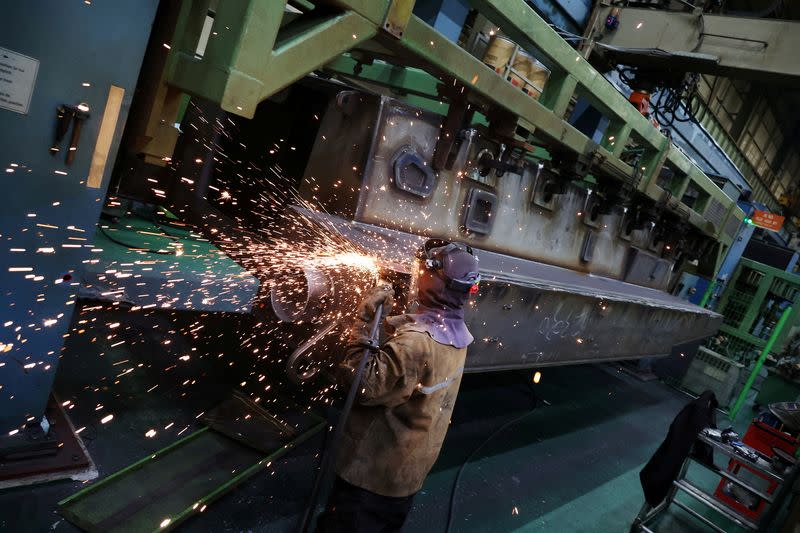Manufacturing shrank again in South Korea in June for a record 12th consecutive month, a survey showed on Monday.
This is now the longest decline in 19 years and shows that weak conditions undermining the industrial sector could take some time to recover.
S&P Global’s seasonally adjusted purchasing managers’ index (PMI) for South Korean manufacturers fell to 47.8 in June, from 48.4 in May, marking the lowest level and its first fall in three months.
It has remained below the 50-mark that separates expansion from contraction since July 2022, the worst such streak in a survey that began in April 2004.
The survey result comes in stark contrast to brighter signs of recoveries in the country’s output and exports, suggesting manufacturers’ downbeat sentiment and weak business conditions might take a while longer to turn a corner.
ALSO SEE:
Weak Global Demand Hits Factory Activity Across North Asia
Soft export demand in Asia, Europe
Output and new orders dropped by the most in eight months and six months, respectively, dragging the headline index lower.
New export orders also suffered the steepest decline in five months, with the survey noting muted demand in key export markets, namely in Asia and Europe.
Asia’s fourth largest economy posted slim growth in the first quarter and has struggled to motor on due to weak external demand.
There were some improvements on the inflation and supply chain fronts, but they were mostly due to weaker demand. Input price inflation was the softest in its rising streak that began in July 2020, while suppliers’ delivery times shortened by the most since May 2013.
Output prices fell for a second month, as cost pressures eased, though there was also evidence that they were reduced in an effort to stimulate sales.
“PMI survey data for June indicated that operating conditions in the South Korean manufacturing sector remained muted at the midpoint of 2023,” economist Usamah Bhatti at S&P Global Market Intelligence, said.
“Business confidence eased to the weakest in 2023 to-date amid concerns that the current economic malaise would be more prolonged than previously expected,” Bhatti said.
Manufacturers’ optimism for future output fell in June to the lowest level since December 2022, a sharp U-turn from hitting a 10-month high in May.
- Reuters with additional editing by Jim Pollard
ALSO SEE:
China’s Industrial and Services Activity Slips Further in June
US ‘to Extend’ China Chip Curb Waivers for South Korea, Taiwan
Competition in Chip Industry an ‘All-Out War’, South Korea Says
China Forex Chief Pan Gongsheng ‘to be New Central Bank Boss’
China’s New Anti-Espionage Law Puts Firms at Risk, US Warns
























